
Hãy nhập câu hỏi của bạn vào đây, nếu là tài khoản VIP, bạn sẽ được ưu tiên trả lời.



1 Samuel has kept a diary since 1997
2 We have learnt English for five years
3 I have lived in HCM City since I was 8
4 She started teaching the children in this remote village 5 months ago
5 The last time he wrote to me was in April
6 She last had a swim 5 years ago
7 They haven't talked to each other for 2 months
8 She hasn't seen her elder sister since 1999
9 The last time she wrote to me was years ago
10 Robert and Catherine started marrying ten years ago
11 They last cleaned their room 2 weeks ago
12 John hasn't had his hair cut over six months ago
13 It's the first time we have eaten this kind of food
14 I have never seen this film before
15 He hasn't gone abroad before
16 She has been driving for 1 month
17 We have been eating since it started to rain
18 I haven't had my hair cut since I left her
19 She hasn't kissed me for 5 months
20 We haven't met for a long time

1) A. Find drinking water. (Vì nước rất quan trọng sẽ giúp chúng ta cầm cự trong rừng)
2) A. River water (Nước sông là nước an toàn nhất để uống)
3) B. Watch what the monkeys eat and copy them. (Vì khỉ ăn được thì mình cũng ăn được)
4) A. Light a fire and sleep next to it. ( Vì có lữa sẽ giữ ấm và xua đuổi thú dữ)
5) C. Leave your backpack and run away. (phải bỏ chay ngay đi vì một số loài rắn rất nguy hiểm)
6) C. Use the sun. Its position will help you to decide. (Ánh sáng mặt trời sẽ giúp chúng ta tìm ra con đường đến làng)
7) B. Drink some water from the river until you feel cooler. (Giúp cho cơ thể mát hơn và tiết kiệm năng lượng)
8) B. Follow the river if you can find one. (Đi theo một con sông để tìm thấy nơi có người sống)
1 A. Find drinking water
2 A. River water
3 B. Watch what the monkeys eat and copy them
4 A. Light a fire and sleep next to it
5 B. Be quiet and stand still. It'll get bored and go away
6 C. Use the sun. Its position will help you to decide
7 B. Drink some water from the river until you feel cooler
8 B. Follow the river if you can find one

Today, I was sick so I felt tired, fortunately I did not have the flu A. lying in bed. Everything around me was like reeling. Every step of my staggering, I felt like something like something jerking for my body. Today is a nightmare that I don't want to repeat again.
Today is a bad day for me.I have a runny nose.I feel so tired I just want to drink orange juice and rest to get better.But I still have to complete a lot of homework that my teacher gives me before Tet.I very worried that if I didn't finish the homework in time,I would get a bad grade.

1. was created
2. met
3. its
4. were performed
5. had
6. permission
7. was divided
8. has been
9. is located


1. Hung got the scholarship to study in Singapore but nobody told you the secret, did they?
2. The violence was the result of political and ethnic conflicts.
3. His jacket is made of leather, which is a material made from animals’skin.

1 sold->was sold
2 to wash->Wash
3 to tell->tell
4 clean->to clean
5 typed->Type
6 to cut->cut
7 make->to make
8 to repair->repair
9 maintain->to maintain
10 arrested->Arrest
11 repaired->Repair
12 checked->check
13 to examine->examine
14 type->are typed
15 keep->is kept
16 painted->paint

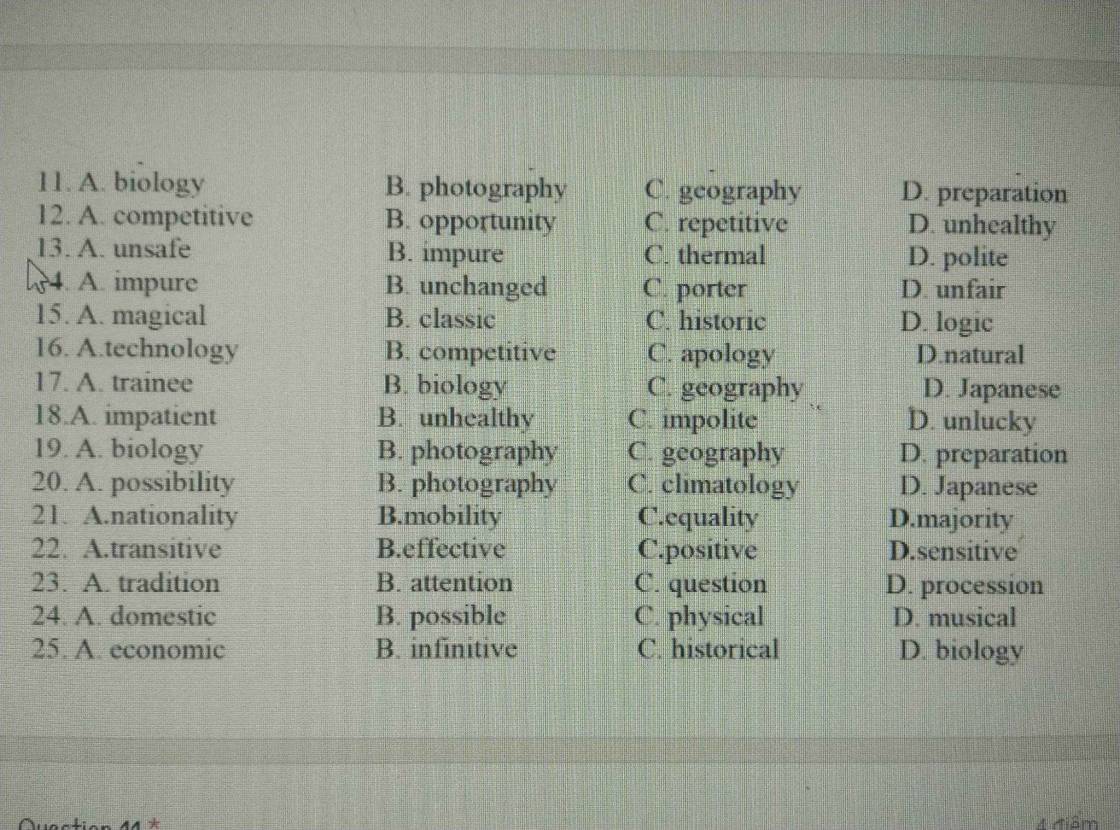
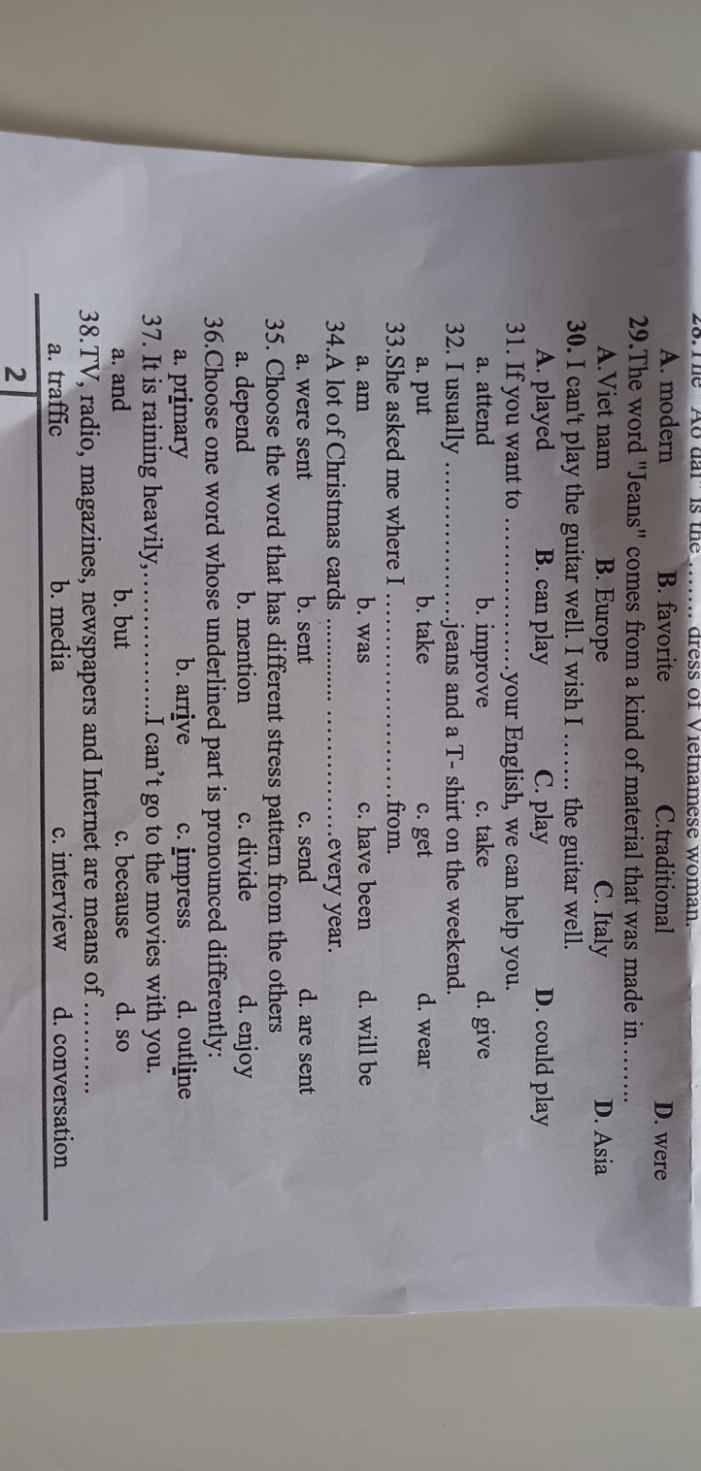
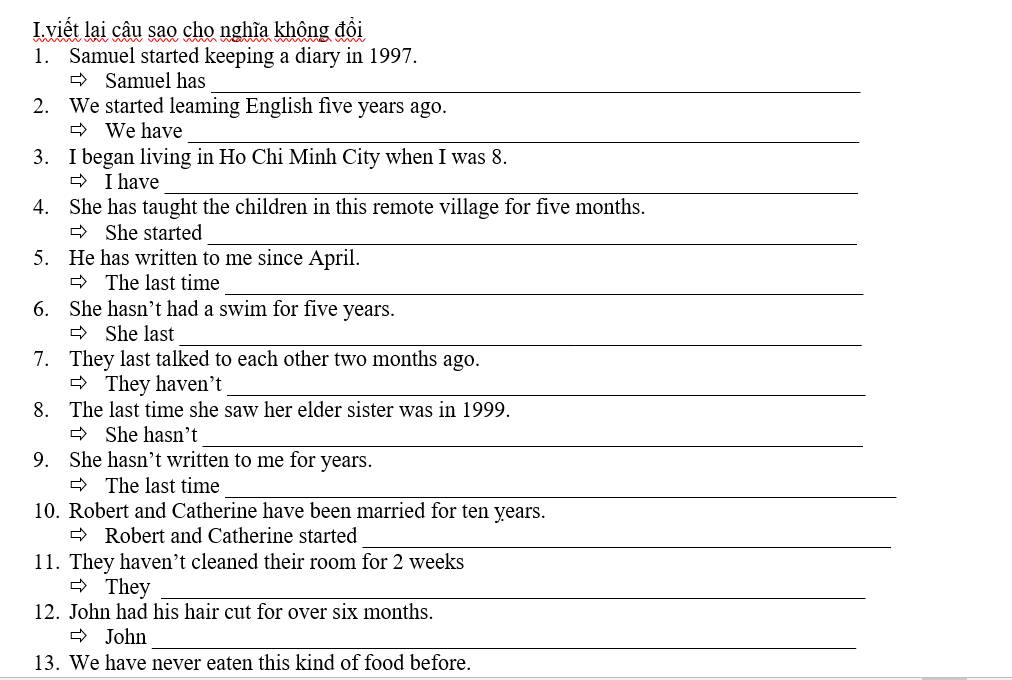
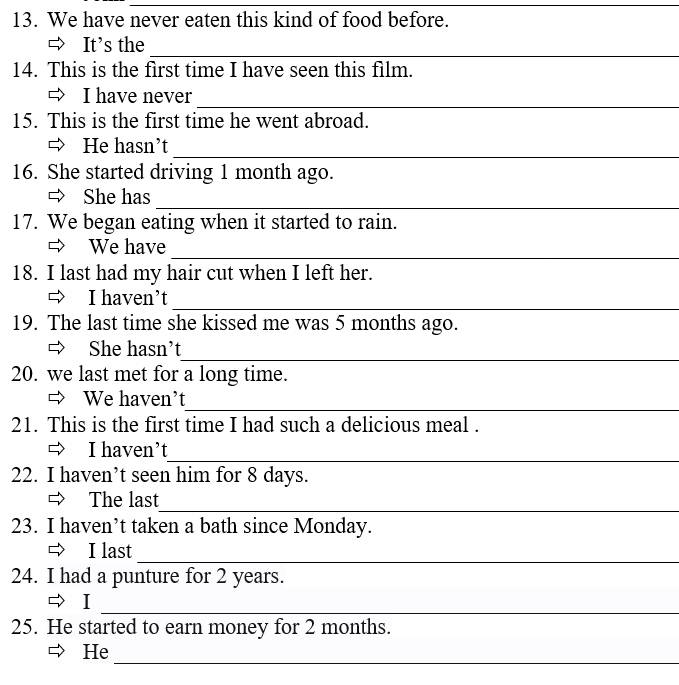
.png)
.png)
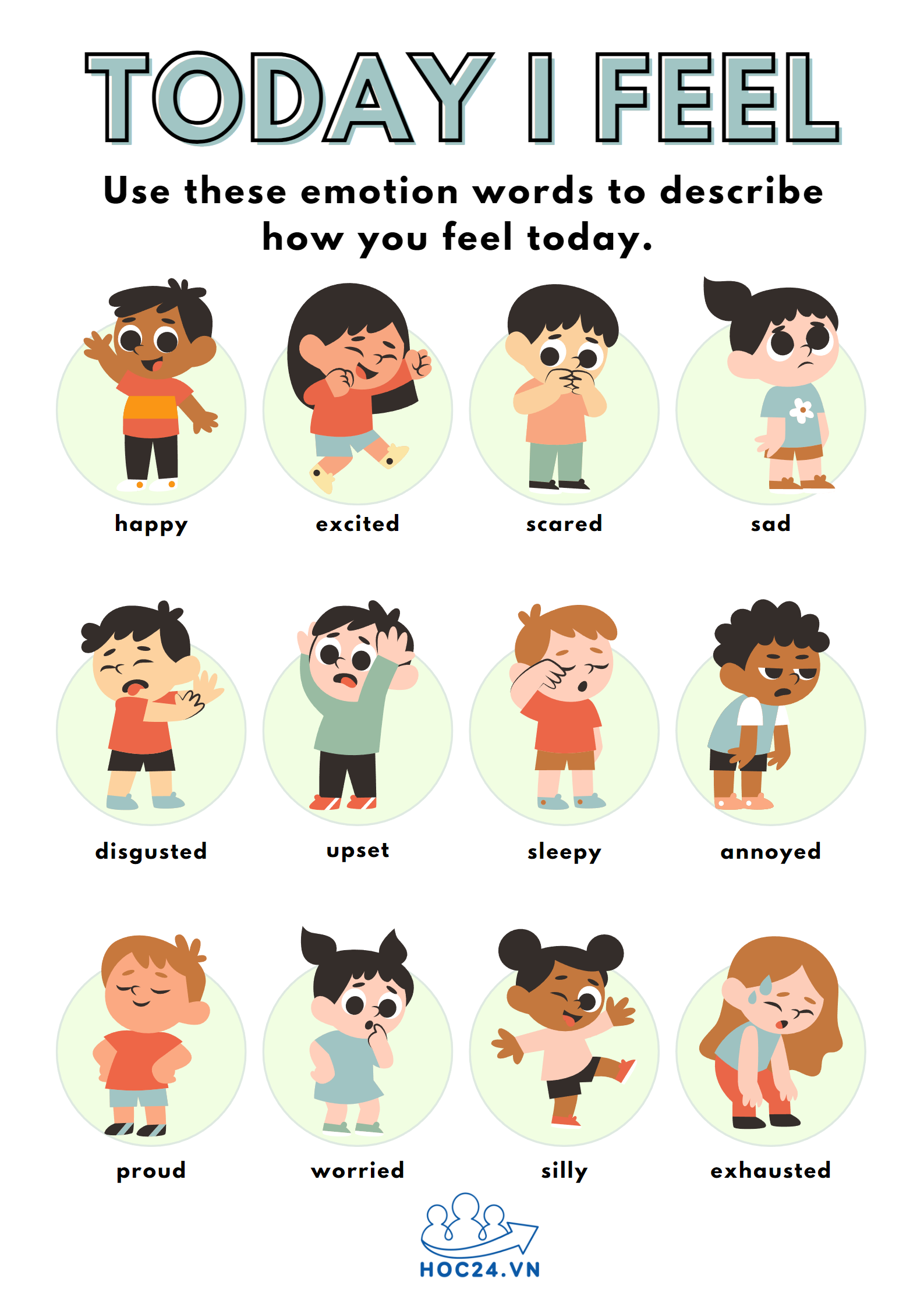
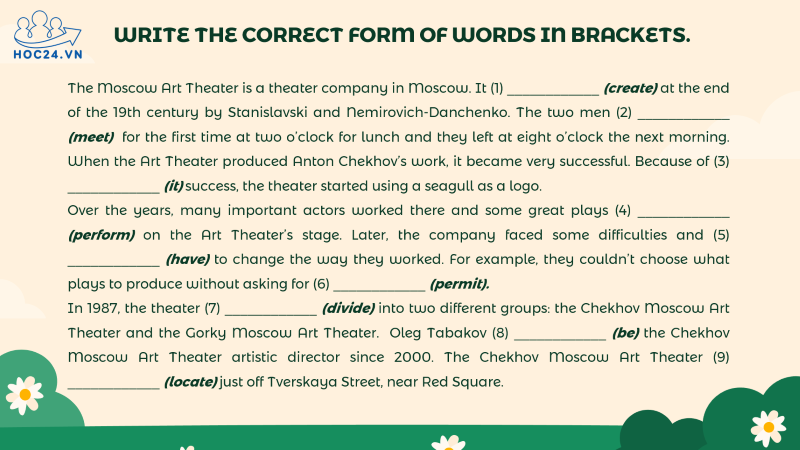










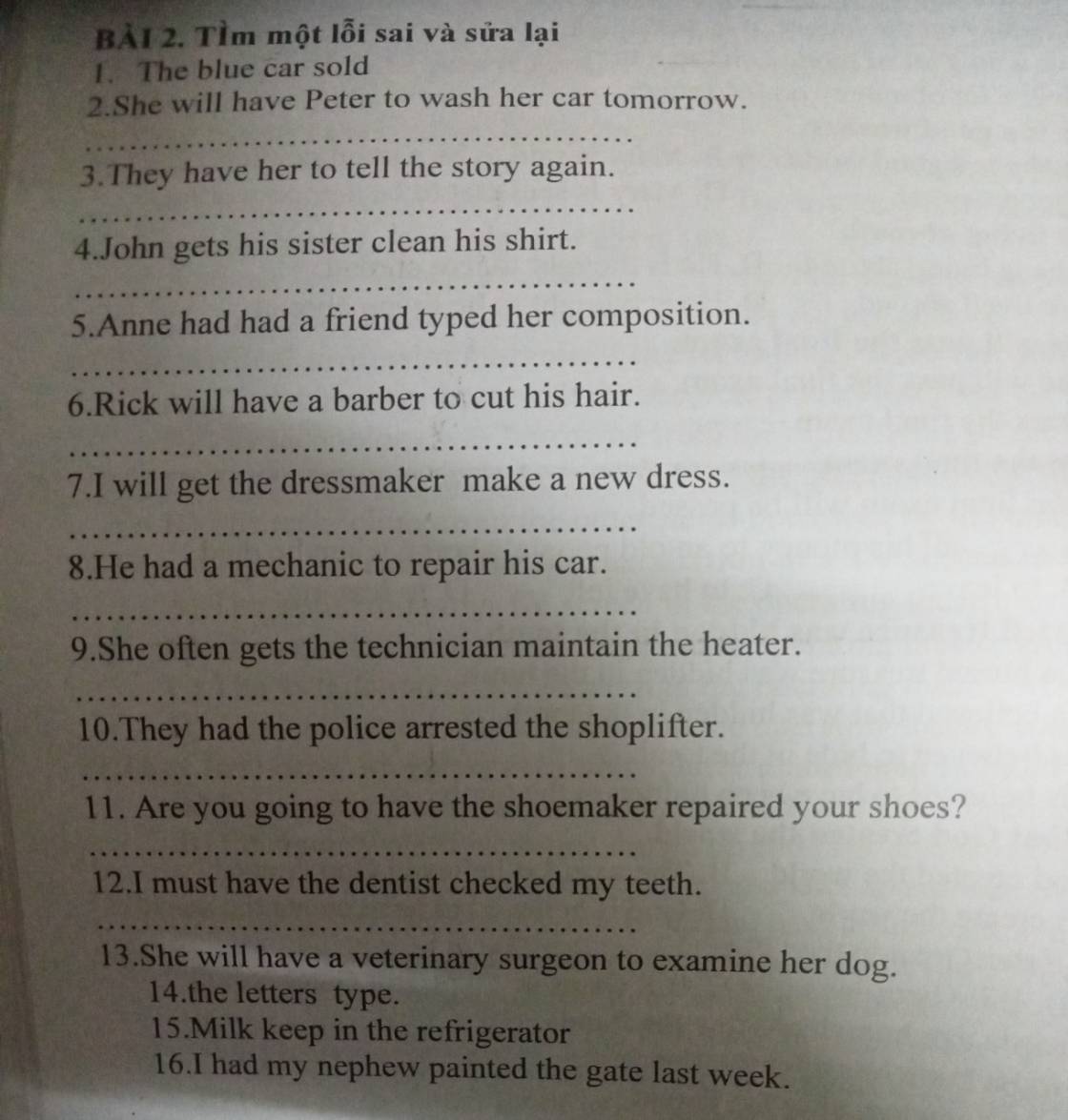
11. D
12. B
13. C
14. C
15. C
16. D
17. D
18. C
19. D
20. B
21. A
22. B
23. C
24. A
25. A